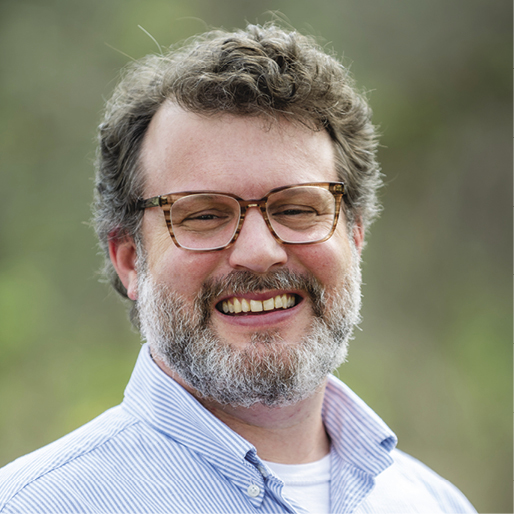David Blackburn, Ph.D.
Curator of Herpetology
Florida Museum of Natural History
2023 Awardee
David Blackburn is an evolutionary biologist who specializes in the diversity and natural history of amphibians. Recently, he has focused on making museum collections available to researchers, educators and the public.
“Over the past 20 years, my research has benefited so much from the resources in natural history museums,” Blackburn said. “I’m excited by opportunities to learn more about biology from these scientific collections and to share that with everyone from 8- to 85-year-olds.”
Between 2017 and 2023, Blackburn was the lead PI on the openVertebrate (oVert) Thematic Collections Network. Funded in part by the National Science Foundation, oVert was a multi-institutional project that generated CT scans for more than 13,000 fluid-filled specimens. The scans are freely available online, where they’ve been viewed more than 1.2 million times and used in more than 240 scientific publications.
He simultaneously served as a PI on iDigBio, a digital repository for the nation’s natural history collections. Since its inception in 2011, the project has received more than $40 million from the National Science Foundation and has been an instrumental resource for institutions across the country in their effort to digitize 1 billion specimens.
“These collections allow us to time-travel, to see what animals and plants were like ten or 100 years ago,” he said. “What were animals eating then? What pathogens did they have? Were they bigger or smaller? Without scientific collections, we lack windows into our past and would have fewer opportunities for predicting the future of biodiversity and ecosystems.”
Blackburn maintains an active research lab at the Florida Museum of Natural History and has published more than 130 peer-reviewed publications. In 2019, he received funding from the University of Florida’s Center for African Studies to support undergraduate field research in Gabon. He currently has support from the National Science Foundation to study the complex genetic histories of frogs in Central Africa.
Closer to home, he’s an advocate for Florida’s biodiversity. He was awarded $56,000 from UF’s Office of Sustainability to create BioGator, an online database of plants and animals on campus with photos, species descriptions and local checklists.
“Natural history museums often conduct research far from home and on organisms that most people never see up close,” Blackburn said. “We have opportunities for engaging our local campus community in the same topics of exploration and landscape change.”


